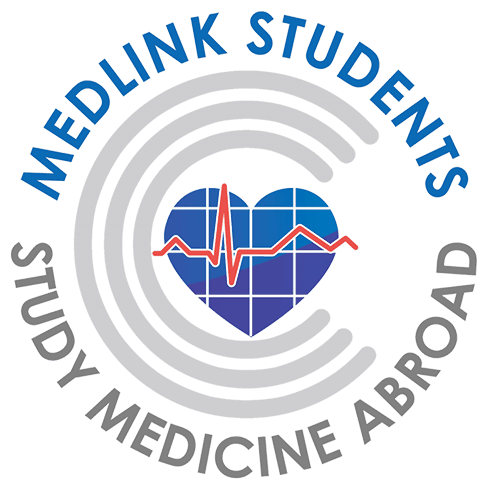How to Apply To Study Medicine in Europe If You Are From The USA?

Today, the demand for doctors in the US is at an all-time high, especially with certain recent events showing just how vital their role in society really is. Overall, being a doctor isn’t a bad career choice. You’d be paid very well, and, more importantly, you’d get to make a tangible difference in the lives of people. Not many can brag about that!
But there’s a big downside, too—medical education in the US can be tough. There are limited spaces, a big difference in the quality of education between public and private institutions, and, worst of all, tuition fees that leave students hundreds of thousands of dollars in debt. It’s no wonder many potential medical students from the US are reluctant to pursue that path.
But there is another way. In recent years, more and more students have started exploring the option of completing their education in Europe rather than the US. Is this even possible? If so, how does it work?
Let’s take a deep dive into the world of European medical education and find out!
Table of Contents
- 1 Can a US citizen study medicine in Europe?
- 2 Can you study medicine in Europe in English?
- 3 What is the cost and availability of medical courses in European schools?
- 4 Which European country is best for medical school?
- 5 Our Webinar Awaits You
- 6 What are the best medical schools in Europe taught in English?
- 7 Do I need to take the USMLE to practice in the US?
- 8 How do I register as a doctor in the US?
- 9 So, why study medicine in Europe as a US student?
- 10 You’ve got questions? We’ve got answers!
Can a US citizen study medicine in Europe?
Yes, US citizens are permitted to study medicine in Europe. Many medical universities will provide their programs entirely in English to US citizens, allowing them to learn just as easily as they would in the United States.
Can you study medicine in Europe in English?
Indeed, if anyone ever told you you couldn’t study medicine in Europe in English, then they haven’t been paying attention. Over the last decade or two, over 100 European medical schools throughout Europe have started to offer their programs entirely in English, making them suitable for students from the US.
The curriculum is taught 100% in English, and it includes textbooks, lecturers, tests, and any supplemental materials. Not only that, but when the clinical years start and students begin to actively practice in a hospital environment (shadowing doctors, interacting with patients, etc.), an interpreter is always nearby.
But why would anyone study medicine in English in Europe? Doesn’t it make more sense to just stay at home? Well, not necessarily. Here’s why:
What is the cost and availability of medical courses in European schools?
For one, European schools are significantly more affordable than American ones, especially medical schools. As of 2022, American students are nearly $1.77 trillion in debt, with medical school graduates, in particular, topping the charts. Although doctors in America earn a lot, they still end up paying off their student loans longer than many other professions.
Meanwhile, by choosing to study in Europe, your tuition fees can be as low as $3,000 a year. Even when accounting for living expenses (and countries with slightly higher tuition rates), the average sum a student ends up spending per year is $10,000. Still an investment, to be sure, but not the type that will make you spend decades in debt.
Furthermore, there’s also the matter of availability. Medical education is in very high demand, and the competition for the limited spots available in the US can be rather fierce. Meanwhile, Europe has more schools than the US (over 200 vs 172), and half of them accept international students. If you fail to get into an American med school, European entrance is practically guaranteed.
Is it better to study medicine in Europe or in the USA?
It is better to study medicine in Europe than in the USA. Many factors, such as the low tuition and living costs compared to the US, alongside the equal level of medical education, make Europe preferable for medical students.
As we mentioned above, the difference in price tag between studying medicine in Europe vs the US is gigantic, but let’s elaborate on that a little bit more, shall we? Just to put some numbers into perspective.
According to Education Data, a year of medical school in the US costs, on average, around $55,000. So, let’s presume that option A is staying at home and attending a local medical school in the US. We’re also assuming you’re living at home with your parents, and they cover all of your expenses (food, transportation, entertainment, etc.), so the only cost you need to worry about for the time being is your tuition fee. This puts us at $55,000.
Now, let’s imagine you’ve instead chosen to study at Plovdiv Medical University - a slightly more expensive medical school located in one of the oldest cities in Europe. This isn’t the most affordable option, as the tuition fees cost about $8,000 per year - which is far from the lowest in Europe. However, it’s also nearly 7 times lower than tuition in America.


Plovdiv Medical University in Bulgaria is a great option for students coming from the US, with 7 times less tuition fees than any other university there.
But this isn’t a fair comparison - you can live at home with your parents while in the US, but not in Bulgaria, right? So let’s throw in the living expenses. Rent for a single-bedroom apartment in the vicinity of the university will set you back between $150 and $250 per month, depending on your needs - let’s go with the higher end and say $250. Utilities (water, electricity and Internet/TV) will set you back $50-100 a month, depending on your energy usage and what services you’re using. Again, let’s go with the higher tier, $100.
Transportation costs vary - a bus ticket is less than $1 for a round trip, so let’s put $25 for transportation. Food will set you back between $150 and $200 a month, say $200. And while we’re at it, let’s throw in $150 a month for leisure; you’re not a robot, and you deserve some fun, after all!
In total, this makes for expenses of around $725 per month, assuming you’re splurging. Many students choose to go home for breaks, which will mess up the numbers a bit (increased cost of transportation and decreased cost of food and leisure bills), but for the sake of simplicity, let’s say you won’t and will spend the full 12 month year in Plovdiv. That’s $8,700 per year in living expenses.
Combine that with the $8,000 a year for tuition, and that totals to $16,700 a year. In other words, it is nearly three and a half times lower than just the tuition fee in the US, without any living expenses included in the US estimate. Do you see why studying in Europe is so lucrative?


Will my degree from a European university be recognised in the US?
Yes, medical degrees from European universities meet the US requirements and will allow you to sit the USMLE. This means that American students can study in Europe and then practice in the US.
Even the best medical university in Europe is completely useless to you if you can’t use your hard-earned degree back home, right? Well, do not worry - the best medical schools in Europe all offer degrees that are internationally recognised.
This means that you can attend a university in a European country (let’s say, Poland), graduate, and then go to work as a doctor right away in the US. Or you can stay in Poland if you happen to like it there. You can even go to another country, like the UK, Canada or Germany, and work there instead.
Obviously, the matter of visas and work permits is an entirely different one. A medical degree isn’t an automatic “work wherever” pass. However, assuming all of your other documents are in order, a medical degree obtained in Europe will be just as valid as one obtained from the US, Canada, or wherever you wish to work.
If in doubt, you could always send an inquiry to the AMA to make absolutely sure that they recognise the university you’re interested in. However, if we’re helping you out with your admittance to medical school, any university we recommend has been vetted by us and recognised by the AMA.
Need help with applying to medicine from the US Fill out our contact form and we'll get back to you with personalised advice!
Check your email to Book a FREE call
with an expert advisor
Look at your promotions/spam folders, just in case.
What are the lowest entry requirements for medicine in Europe?
The only entry requirement that is universal among medical schools is a high school diploma. Everything else, such as an entrance exam or grades in specific subjects, depends entirely on the university.
Being accepted to a medical university in the US is rough. Very rough! You need good grades in Biology, Chemistry, Physics, and Maths, letters of recommendation from your teachers, a motivational letter, and sometimes you even need to pass entrance exams. It’s too much!
We can’t tell you that the requirements to study medicine in Europe are lower across the board. But what we can tell you is that they are indeed lower at many universities.
Entrance exams are hardly uncommon in Europe - most universities require them. But the emphasis is on “most”, as there are still dozens of esteemed, well-established medical schools that simply don’t rely on entrance exams.
For example, Romania’s Carol Davila University Of Medicine & Pharmacy doesn’t require any kind of entrance exam from students; instead, all they need are good high-school grades/GPA. That’s it. And if you’re wondering whether this is some new university desperate for students, don’t: it’s actually one of the biggest and oldest in the country, founded in 1857.
Regardless of whether your grades aren’t very good or you’d simply like to skip the hassle of the entrance exam, there’s always a place for you to study medicine in Europe.


Which European country is best for medical school?
The question of the best country to study medicine in Europe is likely on the mind of most students who are considering going abroad. After all, it’s one of the most important decisions a student can make and one that will determine the next four to six years of their life.
While there is no one right answer to this question, here are a few of the best countries for US medical students:
Georgia
If you’re scratching your head, don’t worry - we mean Georgia, which shares a border with Turkey, not the one in the US! The facts are that Georgia has grown to be one of the best places for American students. Their medical schools, such as the Petre Shotadze Tbilisi Medical Academy (TMA) and the European University of Tbilisi, provide a world-class level of medical education that is as good as any American med school - maybe even better.
All Georgian universities we work with offer their esteemed medical program entirely in English and allow you to sit the USMLE steps, and are ECFMG/WFME. This means that students who graduate in Georgia can return to practice medicine in the US, and their degree will be considered just as valid as one obtained from a medical university back home.
One huge appeal of Georgia is that both the tuition fees and living costs are extremely low. Tuition costs between $4,000 and $8,000 per year, depending on the precise university and programme (medicine and pharmacy, for instance, have different costs per semester).
As for living costs, they range around $400-600 per month, depending on accommodation and the student’s needs. Staying in a university’s dorms will usually cost around $100 per month, while a small apartment will cost around $300-350 per month.
Serbia
Much like Georgia, Serbia is often unrightfully overlooked by American students, despite many graduates calling it the best country to study medicine in Europe. Studying medicine in Serbia can be a better option than studying in the US due to the lower expenses and higher focus on clinical practice.
Many Serbian universities have major hospitals in very close proximity to their campus. Some, like the University of Novi Sad, have many hospitals and clinics near the main university building and across the city of Novi Sad that are open to students.
Tuition fees are slightly higher than those in Georgia, but they’re still significantly lower than those in the US. The average cost of tuition per year is $5,500-$7,000, depending on the university and speciality.
Living costs are similarly low, about $600-800 per month, depending on the student’s needs. Rent is very low, with a single-bedroom apartment costing around $150-200.
Bulgaria
A smaller, quieter country with beautiful nature, cities right by the sea, and some of the best medical universities in Europe, what’s not to love?
Those who choose to study medicine in Bulgaria go not only for the breathtaking scenery but also because Bulgarian medical education is world-famous. Take, for example, the prestigious Sofia Medical University, which is considered by many to be among the best medical education facilities on the continent.
So, why is Bulgarian education so special? Well, first of all, many of its universities are quite old and established. For example, the aforementioned Sofia Medical U was founded over a century ago and has since attracted hundreds of experienced lecturers from around the world.
Another reason is that, much like in Georgia and Serbia, living expenses and tuition fees are extremely low. Sofia is the most expensive city, with living expenses being about $900-1,000 a month. But that’s the outlier - cities like Plovdiv also have great medical universities at half the cost of living.
Of course, it goes without saying that these universities are internationally recognised and featured in the World Directory of Medical Schools. As such, any degrees they issue will allow you to practice around the world, including in the US.
Our Webinar Awaits You


We are aware of the difficulties ambitious medical students encounter in the US today, including the scarcity of opportunities, the prominent disparities in educational standards, and the growing cost of tuition. You shouldn't let this stop you, though, from working toward your goal of being a doctor who has a profound impact on people's lives.
We invite you to register for our international webinar, especially on studying medicine abroad, where a significant section of it is geared toward American students. The time is NOW to find alternatives that provide a high-quality medical education without crushing debt!
What are the best medical schools in Europe taught in English?
We don’t generally like to point to one school and say, “Yep, that one’s the best, all the others suck, and you should definitely go to this one.”
Can you tell me what the best movie of all time is? Some may say “Citizens Kane,” others “Back to the Future,” or “Shawshank Redemption,” or “Godfather,” or “Lion King,” or “The Dark Knight,” or…
Everyone has a different answer to this question because everyone has different preferences and thoughts. It’s the same with universities - no one can agree on which one is the best because everyone has different needs.
So, instead of listing medical schools, we’d like to give you pointers on how to best make your own choice.
Is it listed in the World Directory of Medical Schools?
While we can’t tell you what the best medical school in the world is, we can absolutely tell you what the best schools, plural, are - the ones listed in the World Directory of Medical Schools.
Every med school is carefully evaluated to ensure it meets the strict medical requirements of organisations around the globe, and if it does, it’s added to the Directory. This, in turn, serves as a signal that the university is accredited, and graduates will have no issues having their degree recognised by the AMA or whatever regulatory body operates in their country.
In other words, if the school you’re considering isn’t listed in the World Directory, stop considering it. It’s not worth it, despite how it seems on paper. Always double-check any school you’re considering before applying to it!
What are the entry requirements?
You’ve found the med school of your dreams - and it’s in the World Directory, too! Not only that, but they also accept international students! Time to throw a party!
Well… Not so fast. Have you checked their entry requirements? Some universities are extremely strict with their requirements, just as tough to get into as American schools. Others take a different approach and instead are looking for passion and motivation, not tests and scores.
If you’re confident in your knowledge but your grades aren’t great, you might want to look into a school that values entrance exam scores more than grades. Conversely, you might prefer to dodge the entrance exam completely.
Every school is different, but there will always be a school for you regardless of your needs. If you’re not sure where to begin looking, request a free consultation with us so we can learn your preferences, and we’d be happy to throw a few suggestions your way!
Does the university have the program you’re interested in?
When we talk about “medical schools”, we’re usually referring to a broad collection of programs that include medicine, dentistry, pharmacy, and even veterinary medicine. Most medical schools will indeed offer an MD program, but if you’re looking to study something a little different, you might want to double-check.
Always make sure to research the university you’re leaning toward and verify whether it offers the program you’re interested in - and whether it’s on the level that’s satisfactory to you. For example, you might wish to study a particular speciality rather than obtain a general MD degree. Or you’d like to study in a dedicated veterinary school rather than the veterinary faculty of a bigger university.
The good news is that, with over a hundred medical schools in Europe in English and more in the Caribbean, you’re practically guaranteed to find the one that matches your needs perfectly!


Do I need to take the USMLE to practice in the US?
Yes, all doctors looking to practice medicine in the US, regardless of where they graduated from, must pass the USMLE if they wish to practice in the US.
We’ve mentioned a lot about how graduating from a medical school in Europe will allow you to practice medicine anywhere in the world, including the US - and that is absolutely true. However, one important detail that many American students have asked us about is what that means for the USMLE.
This exam assesses your knowledge and expertise to prove you can practice safely as a doctor, just like the UK’s PLAB or Australia’s AMC.
Every student who wishes to become a doctor in the US will need to pass the USMLE, regardless of where they graduated from. A medical degree obtained at a Bulgarian medical university is exactly as valid as one obtained in a US one, and regardless of which one you have, you’ll still need to pass the USMLE to work.
A natural follow-up question is whether studying medicine in Europe can prepare you appropriately for the USMLE. After all, if the Georgian test is significantly easier than the American one, then wouldn’t the level of medical education be worse in Georgia due to the lower testing standard?
The answer is no. To be featured in the World Directory of Medical Schools, a medical university needs to adhere to strict requirements whether it’s located in the US, UK, Australia or Serbia.
Just because USMLE is the hardest test doesn’t mean the US has the best overall level of medical education. It just means you need to work the hardest.
How do I register as a doctor in the US?
You’ve done it - you’ve passed medical school, and your beautiful diploma is in your hands at long last! One journey is over, and another is about to begin.
But how does that work?
Believe it or not, registering as a doctor in the US is no different whether you graduated in the US or Europe or any of the Caribbean universities we work with, like the Richmond Gabriel. The process is the same. Here’s how it works:
Obtain ECFMG Certification
The good news is that if you’ve graduated from a university we’ve recommended to you, then this part is just a formality. All universities we work with pass the ECFMG eligibility conditions, so all you need to do is present your diploma and other assorted documents (such as certified statements from the university) to the ECFMG. You’ll also need to obtain and register a USMLE number. The good news is that if we helped with your enrollment, we’d be around to help with this part as well.
Pass the USMLE
As discussed earlier, all students who wish to practice in the US will need to pass the USMLE. If you decide to stay in the European country where you graduated, then you’ll be taking their test instead. However, all US doctors, regardless of nationality or where they graduated, take the USMLE. It’s to make sure every doctor in a US hospital is “operating on the same level”, so to speak. But the good news is that you can take it while you study to minimise your off-time - step one can be taken during your third year, and step two in your final year.
Apply for and Complete Residency
This part will be familiar to you - you’ve already done something similar during your final year in Europe! Depending on several factors (such as your specific university, your speciality, and more), you may spend less time as a resident. After all, your 6th year in university was already an internship, so you might need to do one less in the US.
For example, pediatric residency is one year of internship and 2 years of residency. If you’ve already done your internship in Europe, you might just need to do your 2-year residency in the US. However, this is a very complicated topic that depends on several factors, and discussing it in a more general article like this simply isn’t optimal. It’s best to contact our student advisors for more particular questions.
Apply to the State Medical Board for a License
By this point, you’ve certainly passed the USMLE 3, the practical portion of the exam. Most students pass it at some point during their residency, some very shortly after it ends. But once that’s done, the only thing that’s left is to apply to the State Medical Board and obtain your license to heal!
This is a simple process that involves sending the appropriate documents to the Board (such as your diploma, USMLE results, residency documents, everything proving you’re qualified to be a doctor), paying their fee, and then waiting. Before long, you’ll be a doctor!
One thing to note here is that some of your documents (such as your diploma) will need to be translated into English before being accepted by the Board, but that’s a fairly trivial matter. For the most part, the process involves sending a package and then waiting!
5. Obtain Your License
Congratulations, Doctor! The world’s your oyster now!
Many doctors choose to continue working in the same hospital where they completed their residency. Others look for other opportunities, sometimes in different states.
One thing’s for sure, though - your destiny is your own, and it’s up to you now to keep pursuing your medical dreams!
So, why study medicine in Europe as a US student?
Here are some of the biggest benefits you’ll enjoy when you choose to study medicine in Europe:
- Experience a rich culture - Sure, the US is very diverse when it comes to different cultures, but there’s a reason why many refer to it as a ‘melting pot’. But it’s not quite the same as experiencing these cultures on their home turf, so to speak. Ever wondered what Georgian cuisine is like? Ever wanted to be in a real Romanian classroom? Maybe you have, maybe you haven’t, but there’s no denying that these are very unique things that can only be truly experienced outside the US.
- Meet friends for life - We don’t need to tell you that the more you expand your horizons, the better the chance will be of meeting people you click with. If you never leave your neighbourhood, for instance, you won’t ever find more than a handful of people that you get along with. However, if you leave your comfort zone and explore your city and then your state, you’ll find many more people you’ll become close friends with. Now imagine what another country can offer.
- Medical degree at a fraction of the cost - Medical education in even the pricier parts of Europe still costs several times less than what it does in the US. In addition, the living costs in Europe are usually much lower than they are in the United States, with many countries in Eastern Europe requiring no more than around $600 per month for comfortable living. In an era where every doctor is hundreds of thousands of dollars in debt, why join their ranks when you can get the same degree debt-less?
- Knowledge you can’t find in the US - If you’ve ever browsed YouTube for ‘how-to’ videos, you probably stumbled across a guy with a strange European or Asian accent who taught you something you never would have suspected was even possible. That’s because every culture, every person, has its own share of tricks and tips that those from other countries would never suspect without interacting with it. This goes double for medicine. While the US has always relied on cutting-edge diagnostic equipment, this type of technology has only been available in countries like Georgia relatively recently - which means that their doctors have developed some unbelievably innovative methods to diagnose and treat their patients. This kind of thing is not something you’ll be very exposed to if you decide to study in the US.
But perhaps the most important thing you’ll gain from choosing to study medicine in the US is a story. Think about it - how many of your peers in the hospital have studied abroad? How many know how to cook Serbian national dishes? How many will be able to converse with patients from other countries without needing an interpreter? Not only will studying abroad make you a better doctor, but it’ll give you some amazing stories to tell both friends and colleagues!
You’ve got questions? We’ve got answers!
Concerned about accreditation? Curious about educational opportunities? Intrigued by a certain university? Fear not - Medlink Students is here!
Our experienced student advisors have helped hundreds of American students graduate from European universities, and they can help you, too. They’ll be there for you every step of the way, from choosing the right university, booking your flights, and getting you settled into your dorm all the way to applying for your license.
Book a FREE consultation with us today, and let us help you get started on the adventure of a lifetime!
3 comments on “How to Apply To Study Medicine in Europe If You Are From The USA?”
Leave a Reply

About Medlink Students
Leading international recruitment company for medical students in Europe. British Council Certified Agents. 10+ years of experience and more than 10,000 students advised.









If I have a bachelor degree in Biomedicine can I go for a master degree in medicine in Europe and become an MD?
Hey! Thank you for contacting us. Our expert advisors can help you with your query in pursuing a medical degree after biomedical studies. This is an excellent question that is best answered in person after considering your situation. You can do that for free here https://www.medlinkstudents.com/apply/. It takes only 10 seconds, and one of our advisors will contact you as soon as possible.
Great article! I found the information you shared to be really insightful and helpful. Thanks for sharing your expertise.